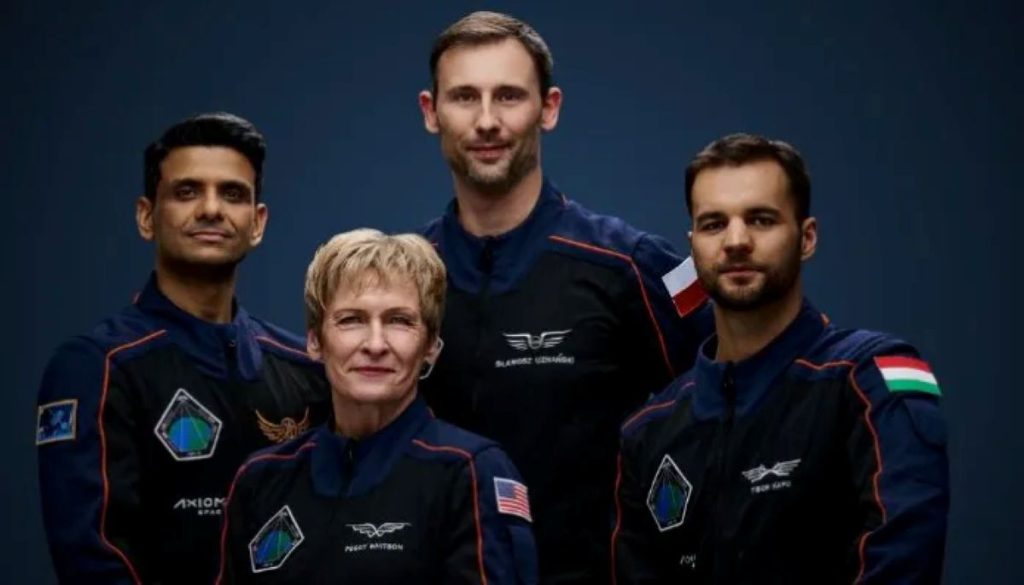India is set to mark a historic milestone in space exploration as Group Captain Shubhanshu Shukla, a decorated Indian Air Force (IAF) pilot, prepares to become the first Indian astronaut to journey to the International Space Station (ISS). Scheduled for launch on June 10, 2025, aboard the Dragon spacecraft, Shubhanshu Shukla’s mission is a testament to India’s growing prowess in human spaceflight.
This article explores the fearless flight path of Shubhanshu Shukla, tracing his journey from a combat pilot to a test pilot, and now an astronaut, while highlighting the significance of his mission for India and the world.
From Indian Air Force Combat Pilot to Test Pilot
Commissioned into the Indian Air Force in 2006 as a Flying Officer, Shubhanshu Shukla quickly rose through the ranks due to his exemplary skills and dedication. Known for his sharp instincts and calm demeanor in high-pressure situations, Shukla served as a combat leader in various challenging missions.
He later became a test pilot, a prestigious role requiring exceptional flying expertise. Test pilots evaluate new and modified aircraft, pushing them to the limits to ensure safety and performance. This role sharpened Shukla’s abilities to respond swiftly and make critical decisions — qualities essential for astronauts.
Read Also: Vande Bharat Express Begins Service on Katra-Srinagar Route
Source: The Indian Express
Selection for India’s Human Spaceflight Program
In 2019, Shubhanshu Shukla was selected for India’s Human Spaceflight Programme under the ambitious Gaganyaan mission. This program aims to send Indian astronauts, called vyomanauts, into space aboard indigenous spacecraft.
Shukla underwent rigorous astronaut training, including extensive sessions at the Yuri Gagarin Cosmonaut Training Center in Russia. The training covered zero-gravity adaptation, survival skills, spacecraft systems, and emergency procedures. Further training took place at India’s own Astronaut Training Facility in Bengaluru, emphasizing scientific experiments and operational protocols for space missions.
This preparation was critical for Shukla’s readiness to pilot the Crew Dragon spacecraft during the upcoming Axiom Mission 4 (Ax-4).
The Historic Axiom Mission 4 (Ax-4)
Group Captain Shubhanshu Shukla will pilot the Crew Dragon spacecraft on the Axiom Mission 4, a commercial spaceflight mission to the ISS scheduled for June 2025. This mission is significant not only for Shukla’s personal journey but also for India’s reemergence in human space exploration after over four decades.
Alongside international astronauts, Shukla will conduct vital scientific experiments focusing on space agriculture, life sciences, and material research. Notably, the mission includes collaborations with NASA, enabling India to contribute to global space research.
The mission is also designed to foster educational outreach, with Shukla interacting live with students across India from space, inspiring young minds to pursue science, technology, engineering, and mathematics (STEM).
What Makes Shubhanshu Shukla’s Journey Unique?
Shubhanshu Shukla’s flight to the ISS is a milestone that reflects India’s rapid progress in the space sector. Unlike previous space travelers from India who were scientists or cosmonauts sent via other countries’ programs, Shukla is a test pilot and combat leader selected through India’s indigenous program, highlighting self-reliance in space exploration.
His experience as a test pilot ensures he is well-equipped to handle the technical demands and unexpected situations during spaceflight. His military background instills discipline, resilience, and the ability to function in extreme environments — all critical for a successful mission in space.
Challenges and Preparation: Training Beyond Earth
Training for space is an extraordinary process that goes beyond physical fitness. Shukla underwent altitude chamber exercises simulating low-pressure conditions similar to space, centrifuge training to endure high G-forces during launch and reentry, and underwater sessions to practice extravehicular activity (EVA) or spacewalks.
Emergency protocols were a key part of his preparation — learning how to respond to spacecraft malfunctions, depressurization, and other critical failures. Additionally, he was trained to perform scientific experiments aboard the ISS, including botany experiments related to crop growth in microgravity.
These efforts showcase the meticulous preparation behind every astronaut’s journey and Shukla’s readiness to represent India on this global stage.
Significance for India’s Space Ambitions
Shubhanshu Shukla’s mission represents more than just a personal achievement; it symbolizes India’s growing leadership in space technology and exploration. With the Indian Space Research Organisation (ISRO) focusing increasingly on manned spaceflight, lunar exploration, and interplanetary missions, the success of this mission will pave the way for future Indian astronauts.
The mission will also accelerate development of India’s space infrastructure, boost STEM education, and inspire innovations in aerospace technology. Shukla’s live interactions with students from the ISS will directly motivate the younger generation, creating a ripple effect that could expand India’s talent pool in science and technology.
Conclusion: A Giant Leap for India
As Group Captain Shubhanshu Shukla prepares for liftoff, India stands on the cusp of a new era in space exploration. From his early days in the Indian Air Force to the intense astronaut training and now the historic Ax-4 mission, Shukla’s journey is a testament to courage, skill, and dedication.
His mission to the ISS is poised to open new frontiers for Indian space research and inspire millions across the nation. With Shukla leading the way, India’s dream of becoming a key player in human spaceflight is closer than ever before.
